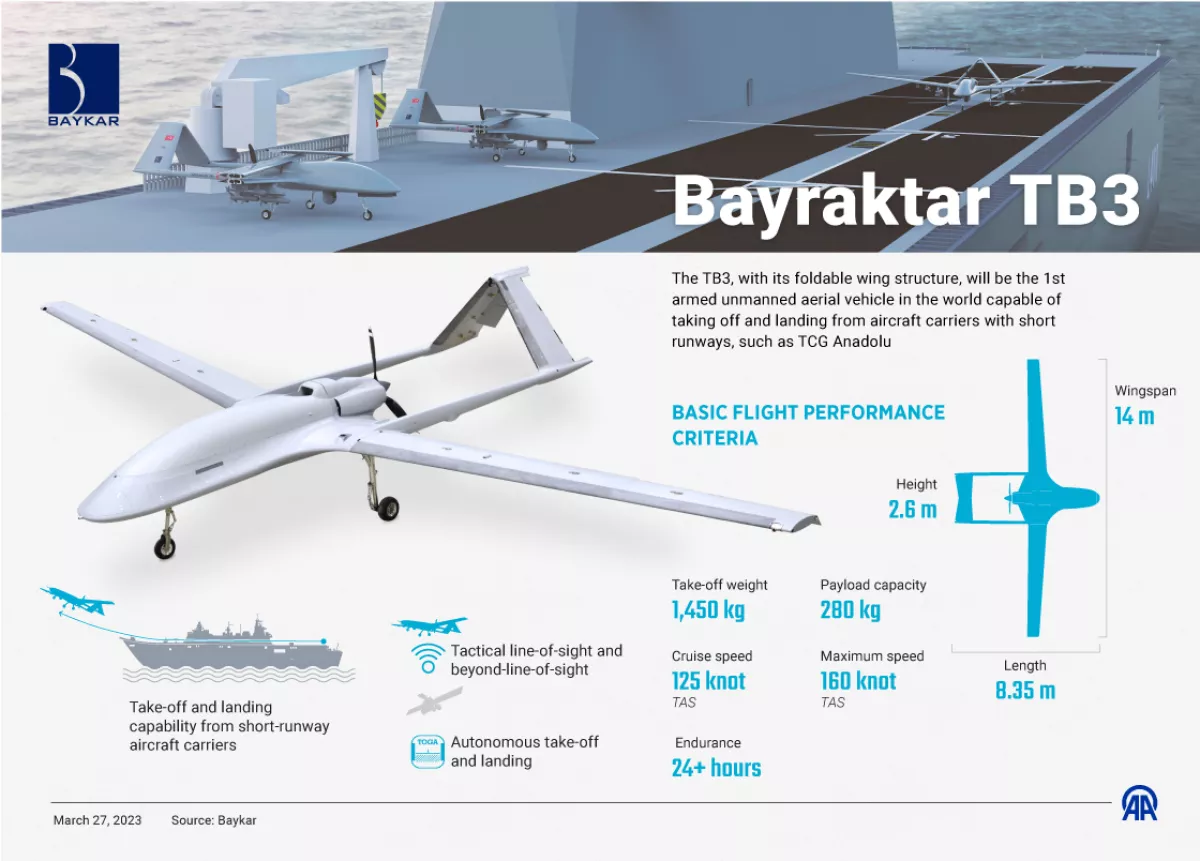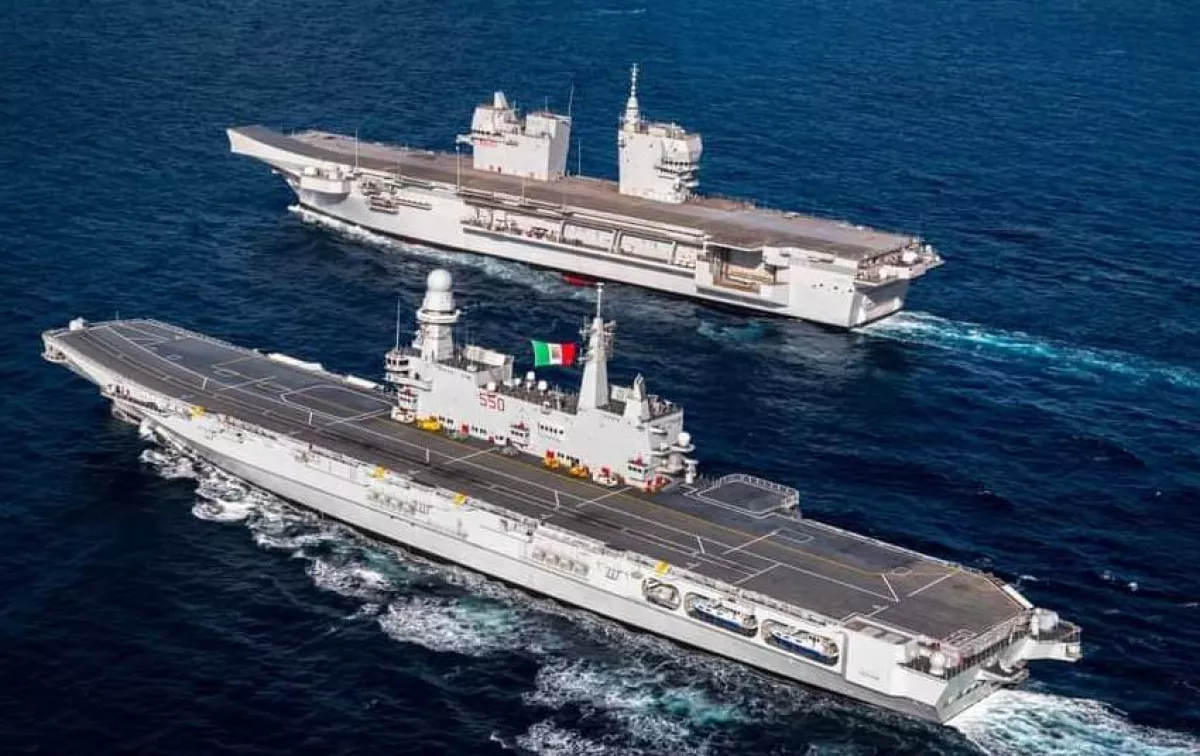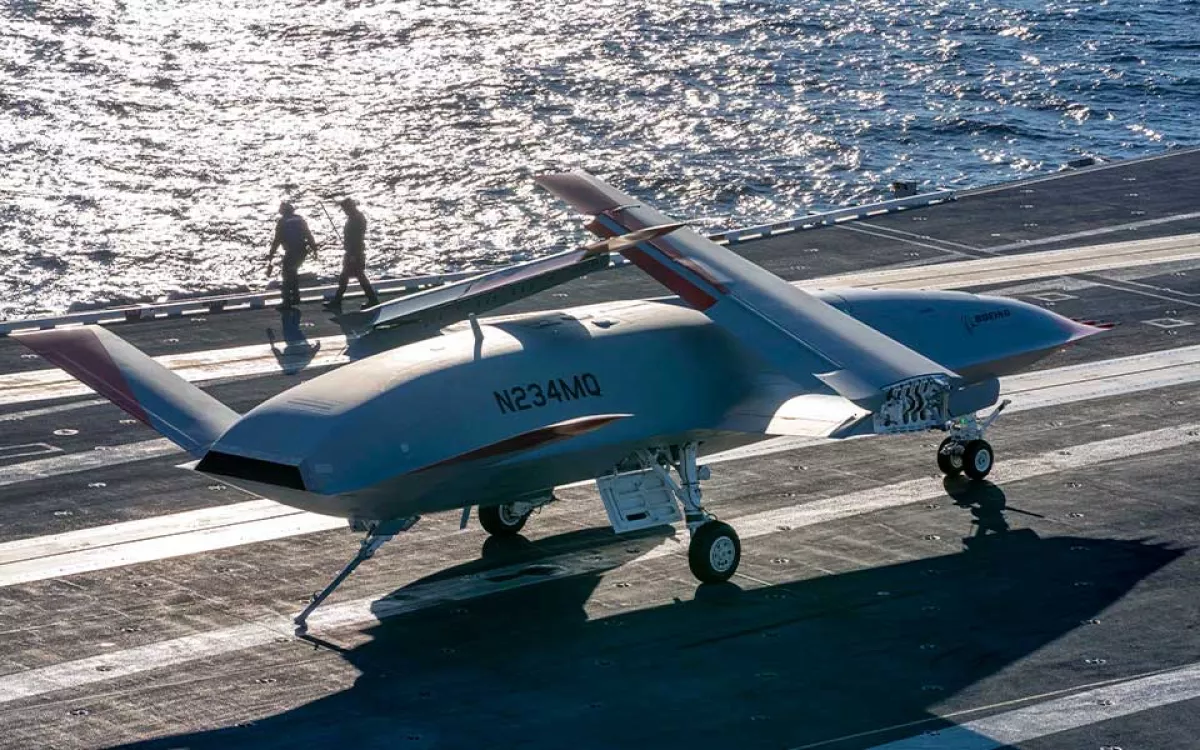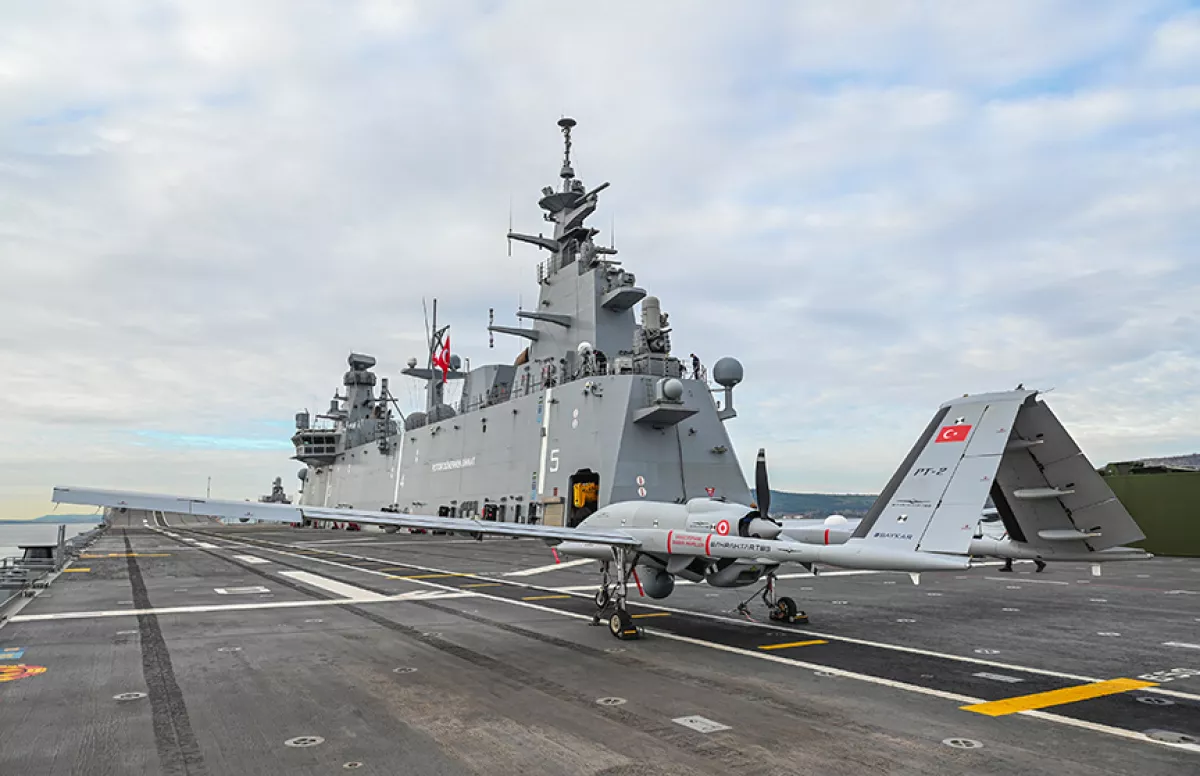Media: Turkish-Italian drone alliance set to redefine carrier warfare PHOTO / VIDEO
The deck-based Bayraktar TB3 unmanned combat aerial vehicle (UCAV), developed by Türkiye’s Baykar in partnership with Italy’s Leonardo under the LBA Systems joint venture, made a striking debut at the Paris Air Show — equipped with a full loadout of Turkish-made weaponry.
According to Army Recognition, this marked the first public confirmation that the TB3 will not only be produced in Italy but also undergo testing aboard Italian Navy aircraft carriers. The announcement was made jointly by Baykar CTO Selçuk Bayraktar and Leonardo CEO Roberto Cingolani during a press briefing.
The Bayraktar TB3, designed for short-deck aircraft carriers, features foldable wings and boasts a maximum takeoff weight of 1,450 kg and a payload capacity of over 280 kg. It is the successor to the widely exported TB2, offering significantly enhanced operational capabilities.

Engineered specifically for naval operations, the TB3 integrates NATO Mode 5 IFF (Identification Friend or Foe) systems, encrypted multi-function communications, precision EO/IR targeting, and electronic warfare countermeasures.
At the Le Bourget air show, the drone was displayed with a range of Roketsan munitions, including the low-observable, subsonic loitering cruise missile Kemankeş, highlighting its potential for long-range maritime strike missions.
Initially designed to arm the Turkish Navy’s TCG Anadolu, completed in late 2023, the TB3 has now entered a new development phase thanks to the industrial collaboration with Leonardo under the LBA Systems banner.
Selçuk Bayraktar emphasised that testing aboard Italy’s ITS Cavour and LHD Trieste would accelerate the platform’s integration with NATO forces. Leonardo’s Cingolani noted that certification in Italy is expected by 2026, leveraging the drone’s already proven flight range and carrier-qualification profile.
What sets the TB3 apart is its unique combination of naval deployability, high endurance (21 to 32 hours), and modular design. Unlike most Western deck-based UCAVs still in early prototyping, the TB3 has already completed operational takeoff and landing tests and supports a versatile payload, from precision-guided bombs to smart cruise missiles.

In comparison, the US MQ-25 Stingray is focused on aerial refuelling missions, and the French SDAM remains under development. The TB3, in contrast, offers a multi-role capability in a deployable, export-ready format ideal for medium-sized navies.
Strategically, deploying the TB3 aboard both Turkish and Italian carriers could reshape Europe’s naval drone landscape, enabling allied maritime forces to conduct persistent surveillance, reconnaissance, and strike operations without the political and financial burdens of manned aircraft.

This further cements Türkiye’s status as a global drone power and signals deepening industrial ties between Ankara and Rome. Politically, the joint production provides an alternative to US-dominated drone markets and aligns with broader European goals for defence autonomy. Militarily, it delivers a durable, precision-capable UCAV to NATO’s maritime frontlines.
Though Baykar has not disclosed the full TB3 program budget, its cost-efficiency is widely praised due to its composite airframe and scalable production model inherited from the TB2 series. Backed by robust Turkish procurement, further orders are expected as tests continue on Italian vessels.

The LBA Systems venture may also lead to wider export deals within and beyond NATO, especially among countries operating helicopter carriers or STOBAR-class aircraft carriers.
The unveiling of the TB3 at the Paris Air Show wasn’t just a technological showcase—it was a geopolitical signal. By confirming production in Italy and forthcoming sea trials, Baykar and Leonardo have laid the groundwork for a future in which NATO navies can rely on a versatile, combat-tested UCAV born from a European-Turkish industrial partnership.
By Tamilla Hasanova








